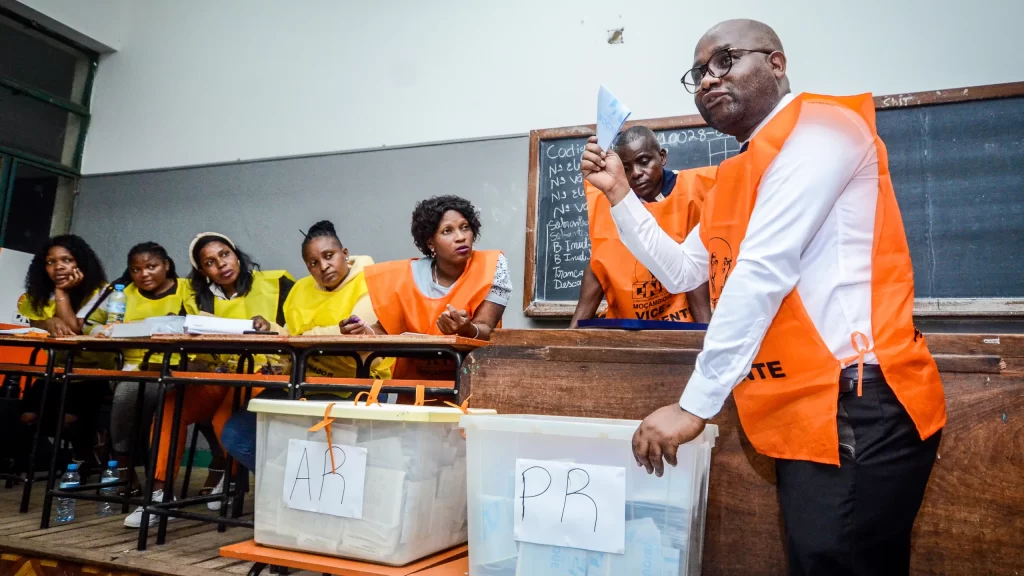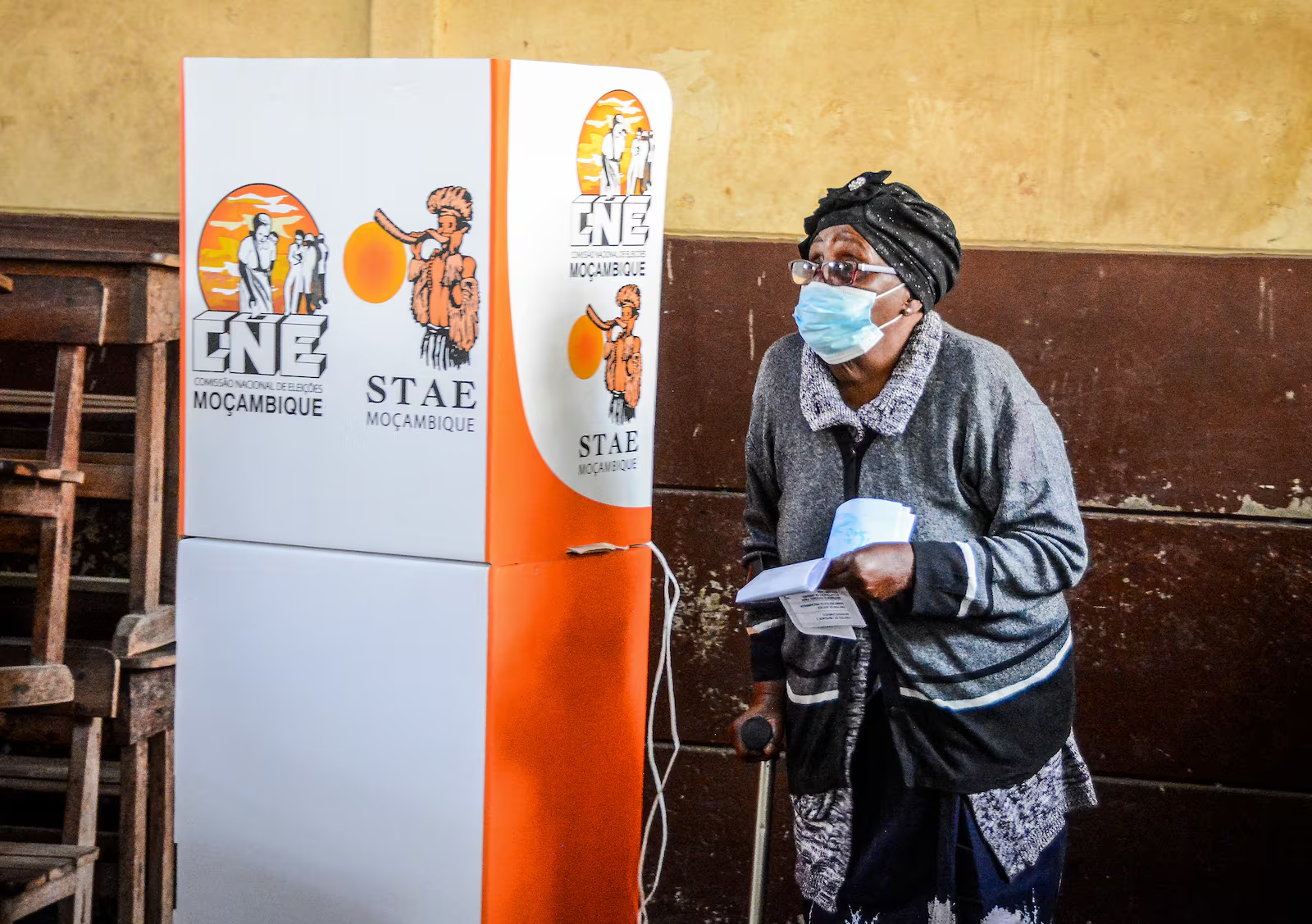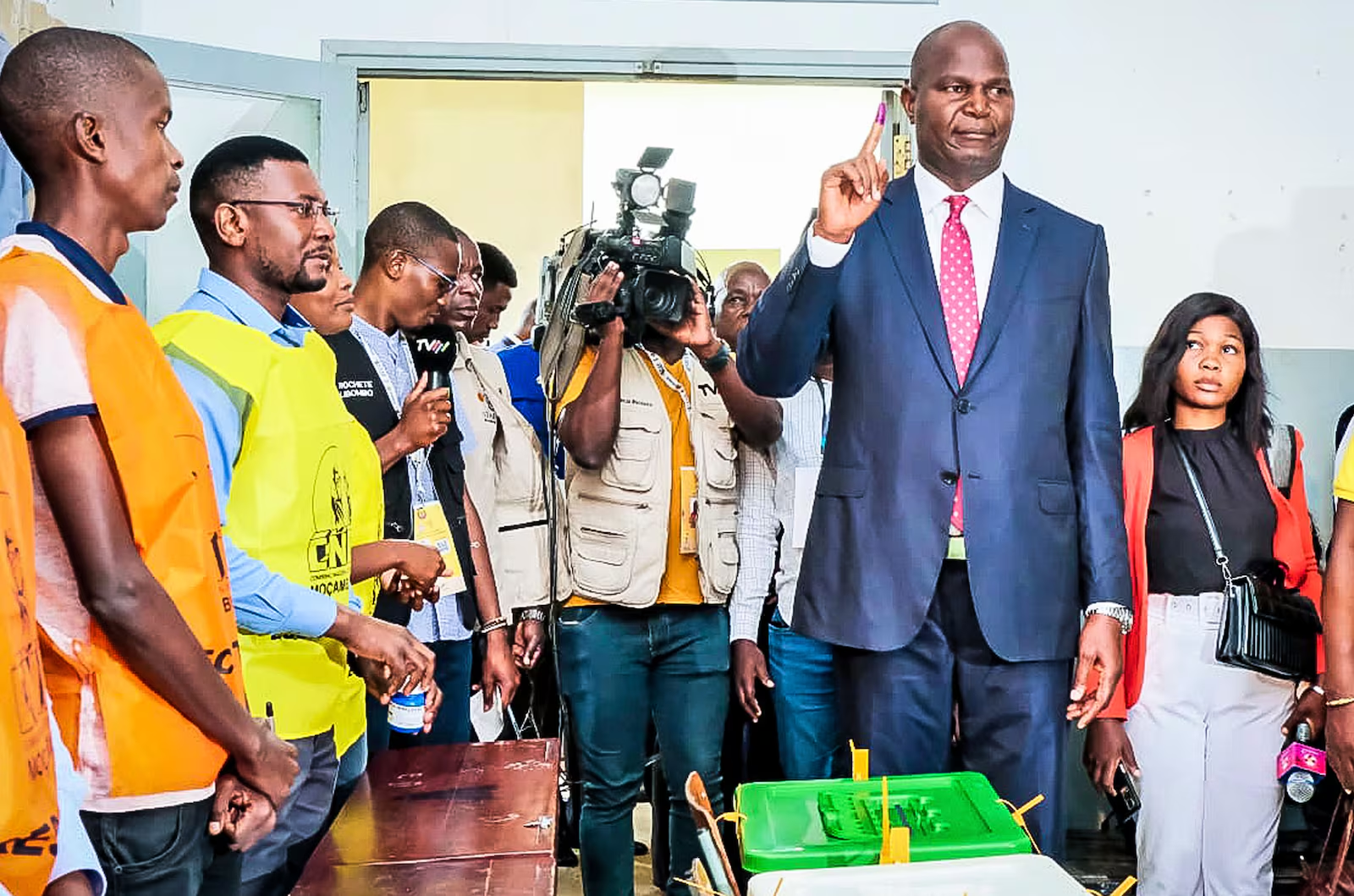Mozambique commenced vote counting late Wednesday in a presidential election that could extend the ruling Frelimo party’s 49-year grip on power, even as opposition candidates raised allegations of fraud and manipulation.

The election pits Daniel Chapo, 47, the Frelimo candidate seeking to succeed term-limited President Filipe Nyusi, against three challengers. Independent candidate Venancio Mondlane, 50, has emerged as the strongest contender, galvanizing support among disaffected youth in the resource-rich but economically challenged nation.
Mondlane, along with other opposition candidates, voiced concerns over the election’s fairness. They claimed ballot boxes were unsealed before voting concluded and that some of their delegates were denied accreditation to monitor the voting process. “I trust the electoral process, but not the people deployed to run the election,” Mondlane stated.

Frelimo, which has governed Mozambique since independence from Portugal in 1975, has consistently denied allegations of electoral tampering. The party is expected to face increased scrutiny in this election, with teams of regional and international observers, including delegations from the European Union and African Union, monitoring the process.
Approximately 17 million registered voters cast ballots for the presidency, parliament, and provincial governors. The election’s credibility is under close watch, given Frelimo’s history of alleged ballot-stuffing and result falsification in previous votes, including last year’s local elections.

Borges Nhamire, an analyst at the Institute for Security Studies in South Africa, cautioned, “In Mozambique, the person who is declared the winner is not always the winner at the polls.”
The election takes place against a backdrop of ongoing challenges, including a violent jihadist insurgency in the northern Cabo Delgado province, which has disrupted a multibillion-dollar natural gas project. Both leading candidates have pledged to end the seven-year insurgency and bring stability to the region.
Chapo, a law professor and former governor of Inhambane province, would become Mozambique’s first leader born after independence if elected. He praised Mozambicans for a peaceful campaign period as he cast his vote in Inhambane.

Mondlane, who broke away from the opposition Renamo party, has drawn large crowds at his rallies, presenting a new challenge to Frelimo’s traditional dominance in national elections. His campaign has focused on addressing unemployment and economic instability, resonating with many young voters.
As counting began, 69-year-old voter Baptista Antonio expressed hope for the country’s future: “All Mozambicans have high hopes from the new president. I was born during the colonial era and saw many transformations of the country, from wars to development, and all I can say is it’s a work in progress. There are many challenges ahead.”
The Constitutional Council has 15 days to validate and formally declare the results. The outcome of this election could significantly impact Mozambique’s political landscape and its approach to addressing long-standing economic and security challenges.
apnews.com


